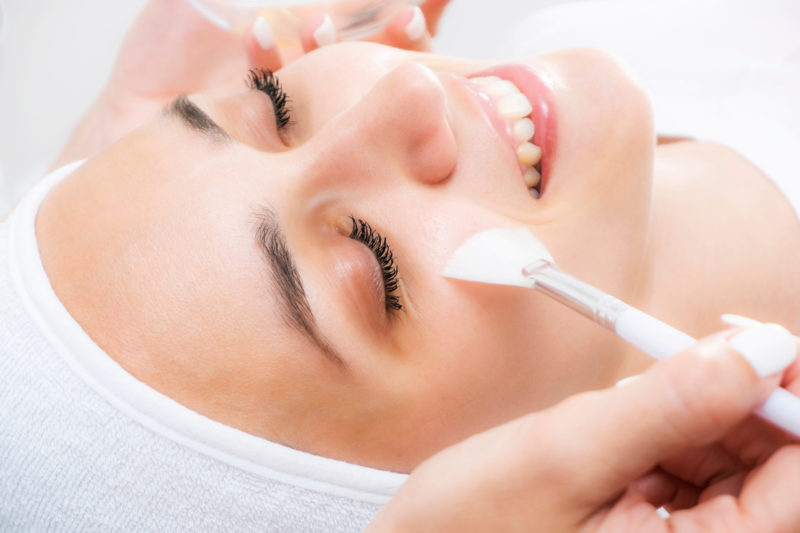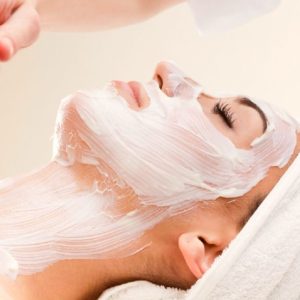
In the bustling city of Cape Town, nestled between the breathtaking landscapes of Table Mountain and the glistening waters of the Atlantic Ocean, lies a hidden secret to achieving radiant and youthful skin: chemical peels. This non-invasive cosmetic procedure has gained immense popularity over the years for its remarkable ability to rejuvenate the skin and address various skin concerns effectively. In this SEO-friendly blog post, we will delve into the fascinating world of chemical peels, exploring their benefits, types, safety measures, and the top-notch facilities available in Cape Town for those seeking a transformative skincare experience.
Price of Chemical Peels in Cape Town:
Going for a routine chemical peel to keep your skin fresh can be expensive so FOMO has a great special for you:

- Understanding Chemical Peels
Chemical peels are dermatological treatments designed to exfoliate the outer layers of the skin using a chemical solution. By removing dead skin cells, debris, and impurities, chemical peels stimulate the skin’s natural healing process, promoting collagen production and revealing a fresh, youthful complexion beneath.
- The Benefits of Chemical Peels
2.1. Improved Skin Texture and Tone
Chemical peels aid in reducing the appearance of fine lines, wrinkles, and age spots, leading to a smoother, even skin texture. They are particularly effective in treating sun-damaged and hyperpigmented skin, making them a popular choice among individuals seeking to rejuvenate their skin’s appearance.
2.2. Acne and Blemish Control
Those troubled by acne-prone skin can also benefit from chemical peels. The exfoliation process helps unclog pores, reduces acne breakouts, and minimizes the appearance of acne scars, leaving the skin clearer and more radiant.
2.3. Enhanced Collagen Production
One of the most significant advantages of chemical peels is their ability to stimulate collagen production. Collagen, a crucial protein responsible for skin elasticity and firmness, diminishes with age. Chemical peels promote collagen regeneration, which contributes to a more youthful and supple complexion.
2.4. Reduction of Sun Damage
Cape Town’s sunny climate beckons locals and tourists alike to enjoy outdoor activities. However, prolonged sun exposure can cause significant skin damage. Chemical peels help reduce sunspots, pigmentation irregularities, and other sun-induced skin issues, restoring the skin’s natural luminosity.
- Types of Chemical Peels
3.1. Superficial Peels
Superficial peels, also known as lunchtime peels, are mild treatments that target the outermost layer of the skin (epidermis). These peels often use alpha hydroxy acids (AHAs) or beta hydroxy acids (BHAs). Superficial peels are suitable for individuals with minor skin concerns and require minimal downtime.
3.2. Medium Peels
Medium peels penetrate the middle layer of the skin (dermis) and are effective for treating more significant skin issues, such as moderate wrinkles and acne scars. They typically use trichloroacetic acid (TCA) and may involve a slightly longer recovery period.
3.3. Deep Peels
Deep peels are the most intensive type of chemical peel and target deeper skin layers to address severe skin problems like deep wrinkles and pronounced sun damage. Phenol is commonly used for deep peels, which require an extended recovery period and must be administered by experienced professionals.
- Safety Considerations for Chemical Peels
While chemical peels are generally safe, it is crucial to consider the following safety measures:
4.1. Professional Consultation
Before getting a chemical peel, consult with a qualified dermatologist or licensed skincare professional. They will assess your skin type and concerns, recommend the most suitable peel type, and explain the procedure’s benefits and potential risks.
4.2. Patch Testing
Patch testing is vital, especially for individuals with sensitive or reactive skin. This preliminary test helps identify any adverse reactions or allergies to the chemical solution.
4.3. Sun Protection
Following a chemical peel, the skin becomes more sensitive to sunlight. It is imperative to apply sunscreen with a high SPF regularly and avoid direct sun exposure for a few days after the treatment.
4.4. Post-Treatment Care
Follow the post-treatment care instructions provided by your skincare professional to ensure proper healing and optimal results.
- Getting a Chemical Peel in Cape Town
Cape Town boasts several reputable dermatological clinics and skincare centers that offer top-notch chemical peel treatments. When choosing a facility, consider the following factors:
5.1. Credentials and Expertise
Look for clinics with experienced dermatologists or licensed professionals who have a proven track record of providing successful treatments.
5.2. Customer Reviews
Check online reviews and testimonials from previous clients to gauge the quality of service and customer satisfaction.
5.3. Range of Services
Choose a facility that offers various types, allowing for personalized treatment plans tailored to your unique skin needs.
5.4. Clean and Safe Environment
Ensure the clinic maintains high standards of hygiene and follows strict safety protocols.
As the vibrant heart of South Africa, Cape Town offers not only breathtaking scenery but also the opportunity to rejuvenate and revitalize your skin through the transformative power of chemical peels. These non-invasive treatments address an array of skin concerns, from fine lines and acne scars to sun damage and hyperpigmentation. However, before embarking on this skincare journey, prioritize safety by consulting with a qualified professional and adhering to post-treatment care instructions. With a plethora of reputable clinics in Cape Town, you can rest assured that your experience will be both effective and rewarding, leaving you with a radiant and refreshed complexion to match the beauty of this incredible city.


